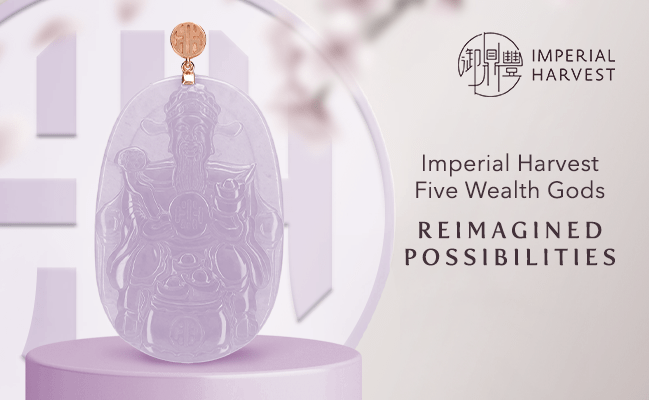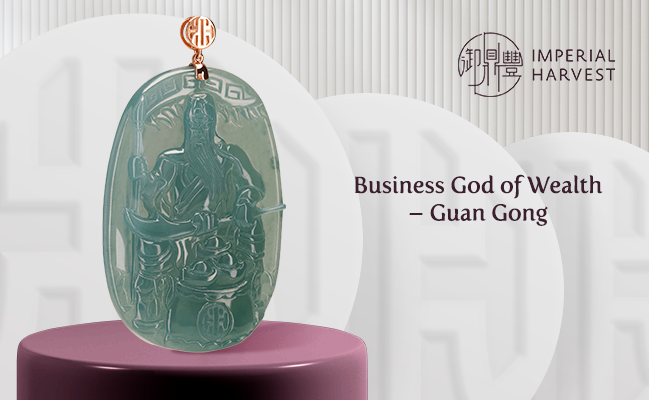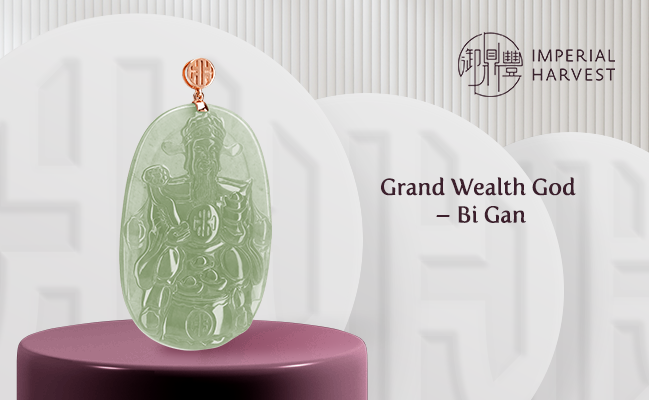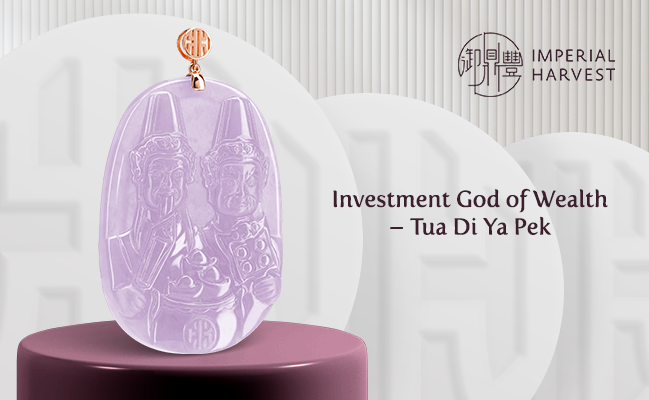

Posted by Imperial Harvest on 09 May 2024
Career God of Wealth – Tua Pek Gong
Estimated Reading Time: 3 mins
The Imperial Harvest Jadeite pendant collection has been meticulously conceptualised and hand-crafted, aiming to enhance the influence of the Major Yin (太阴) in an individual’s destiny chart. Its influence impacts five key aspects of wealth accumulation: career, business, windfall, trading and investment.
Each pendant in the collection has been intricately designed by Master David, who draws upon the profound principles of Imperial Feng Shui. This pendant collection is hand-carved from raw jadeite boulders, showcasing unparalleled craftsmanship. In addition, these jadeite specimens are certified by international gemologists for quality assurance.
Imperial Harvest Signature Collection: Five Wealth Gods Reimagined
Master David has designed and patented the reimagined Five Wealth Gods collection, now infused with a potent wealth-fetching treasure trove strategically positioned. In Chinese mythology, the pantheon includes Five Wealth Gods, each governing a specific domain of wealth: career, sales, trading, investment, and windfall.
On 6 January 2023, Master David unveiled an innovative reinterpretation of Imperial Harvest’s signature Five Wealth Gods collection, honouring the Sangang Wuchang (三纲五常) — a cherished set of values profoundly shaping Chinese culture. Known as the “Three Guiding Principles and Five Constant Regulations,” this concept serves as a beacon of inspiration for personal growth, bringing forth transformative fortunes and laying a firm groundwork for prosperity and success.
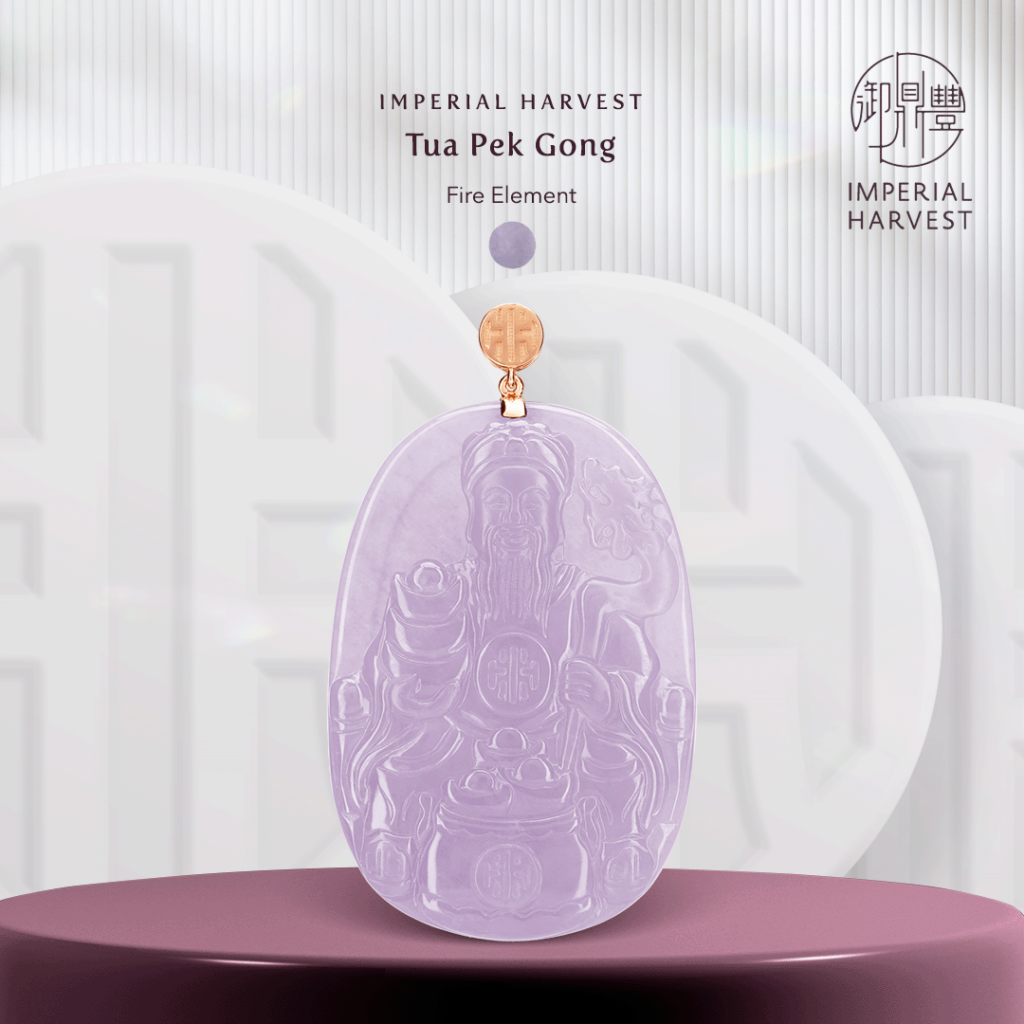
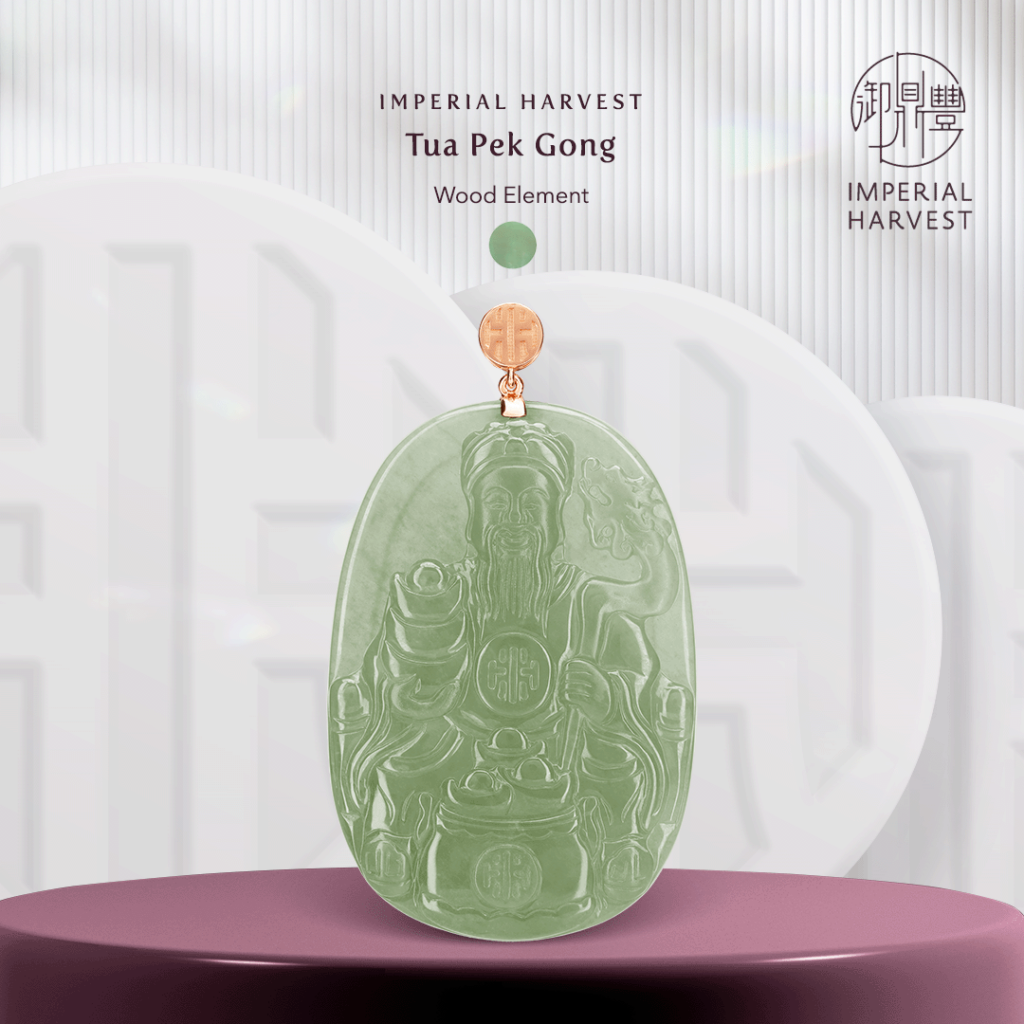
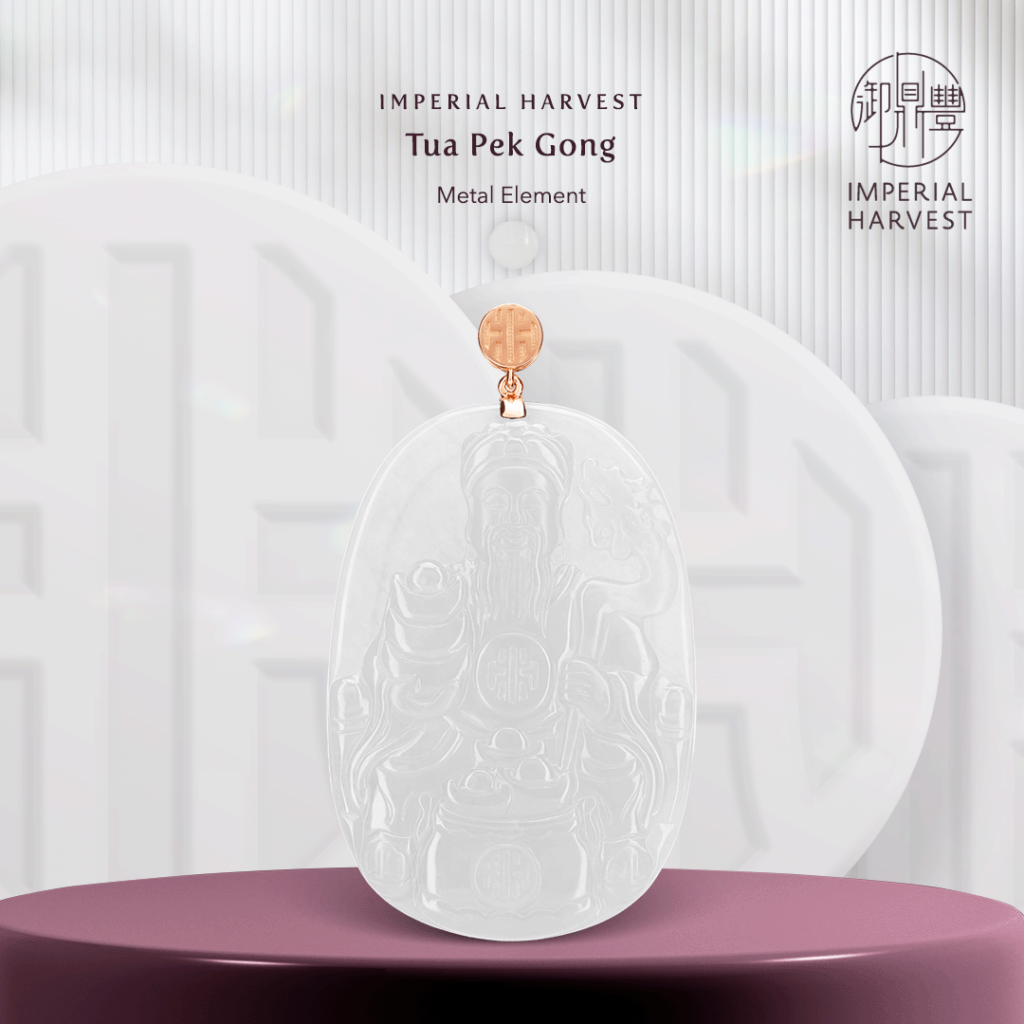
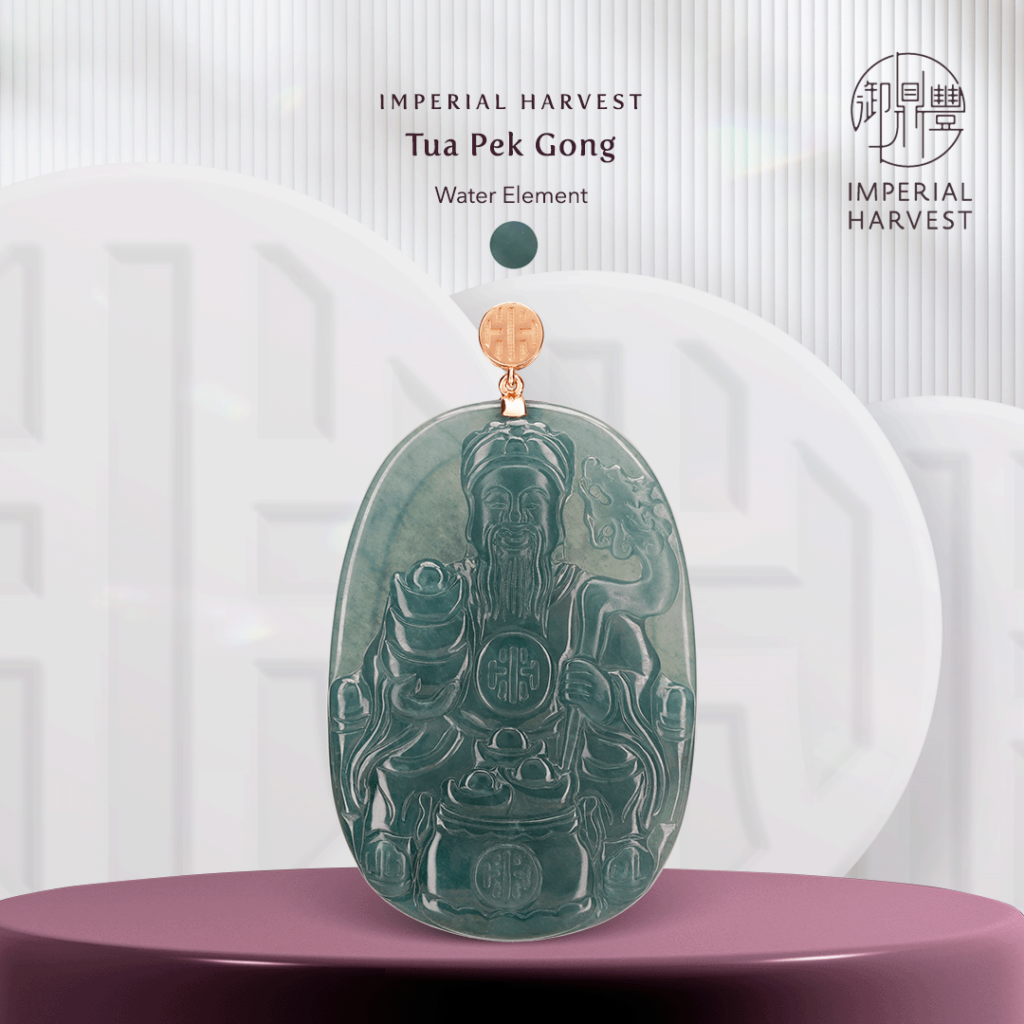
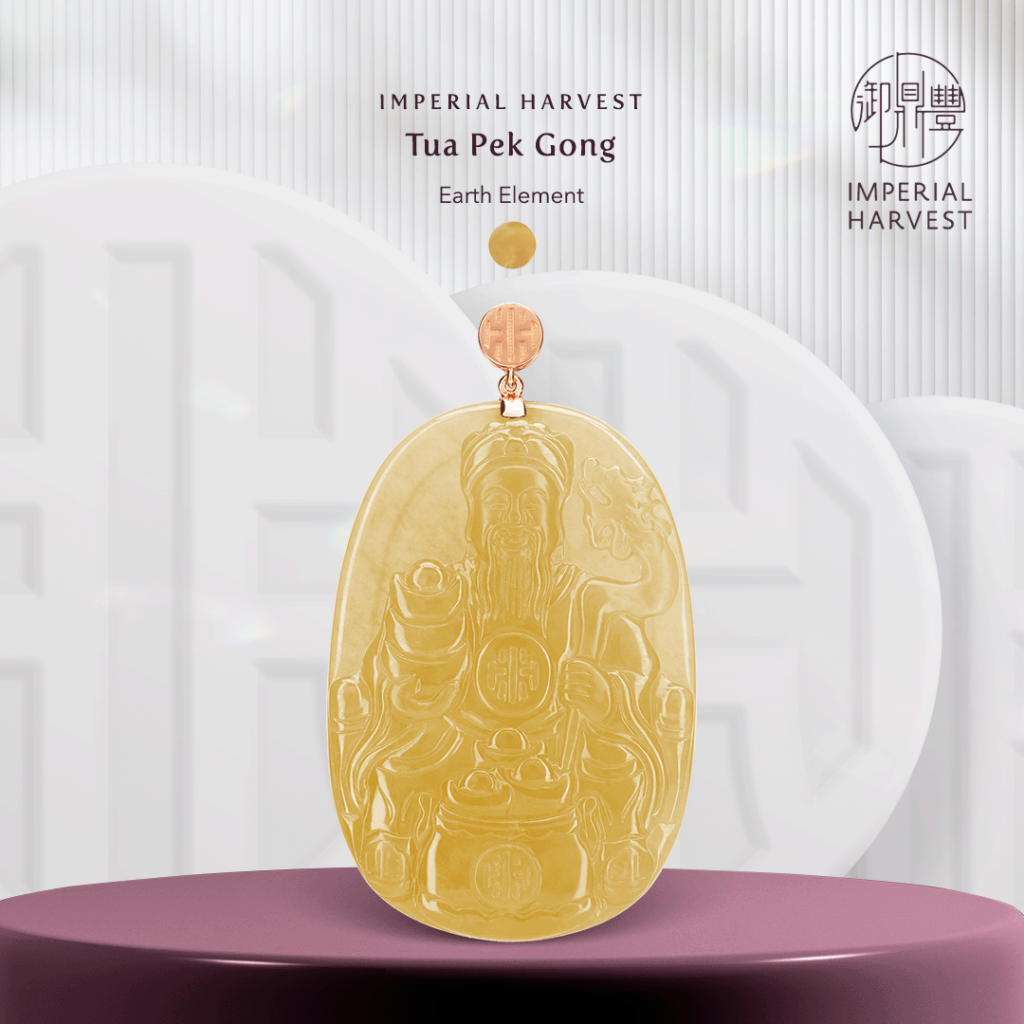
Design and Symbolism
The design of the Imperial Harvest Fine Jadeite Tua Pek Gong centres around the rich history of Tua Pek Gong (大伯公) and his prowess as the Career God of Wealth. This design is rich in symbolism, supporting individuals striving for significant career advancements. With its ability to draw powerful benefactor support, this treasure empowers individuals to rise to the highest levels of the corporate sphere.
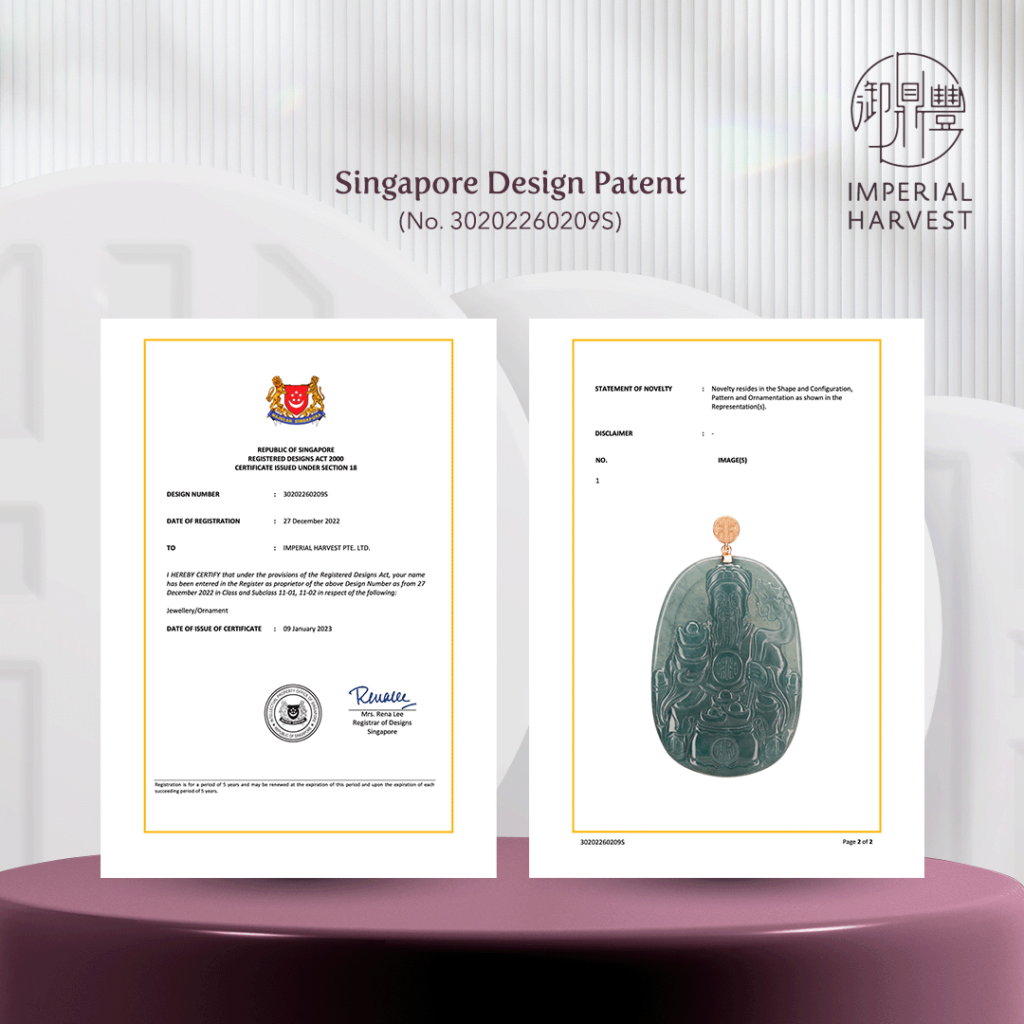
Wealth Garnering Treasure Trove and Gold Ingots
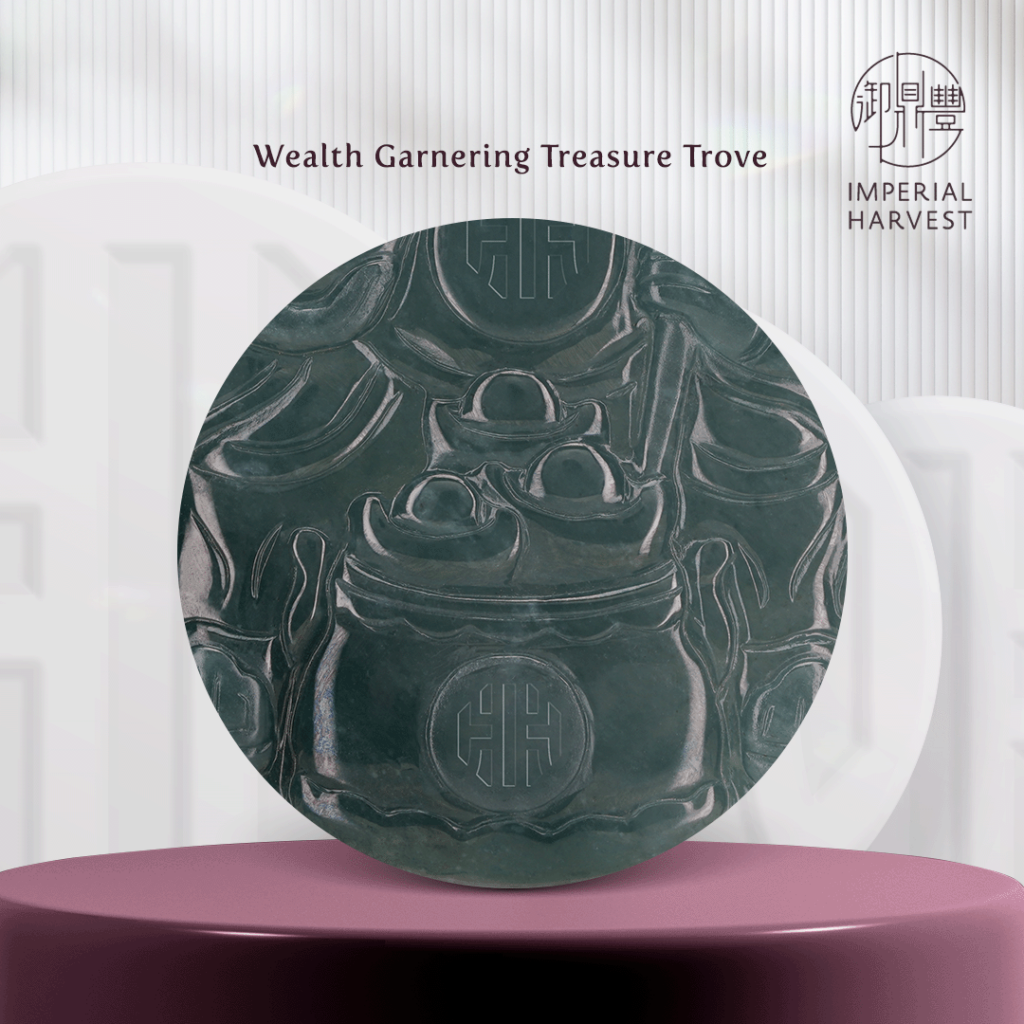
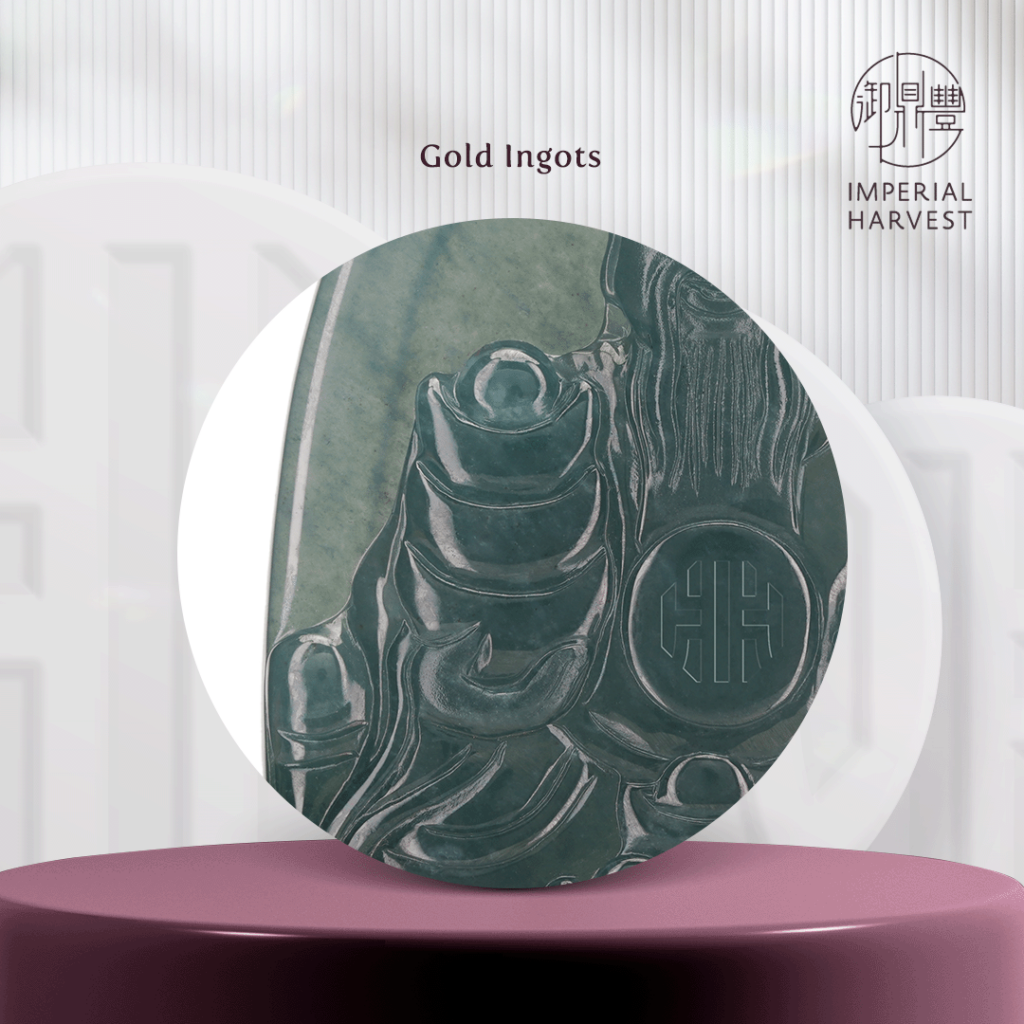
At the heart of the pendant’s design is a wealth of gold ingots, symbolising wealth’s rapid accumulation through strategic decisions and timely opportunities. These gold ingots embody the concept of “招财进宝” — “ushering in wealth and treasures”. This symbol signifies material prosperity, drawing in success and abundance — making the Imperial Harvest Fine Jadeite Tua Pek Gong a potent emblem of financial growth and opportunity.
Dragon Scepter
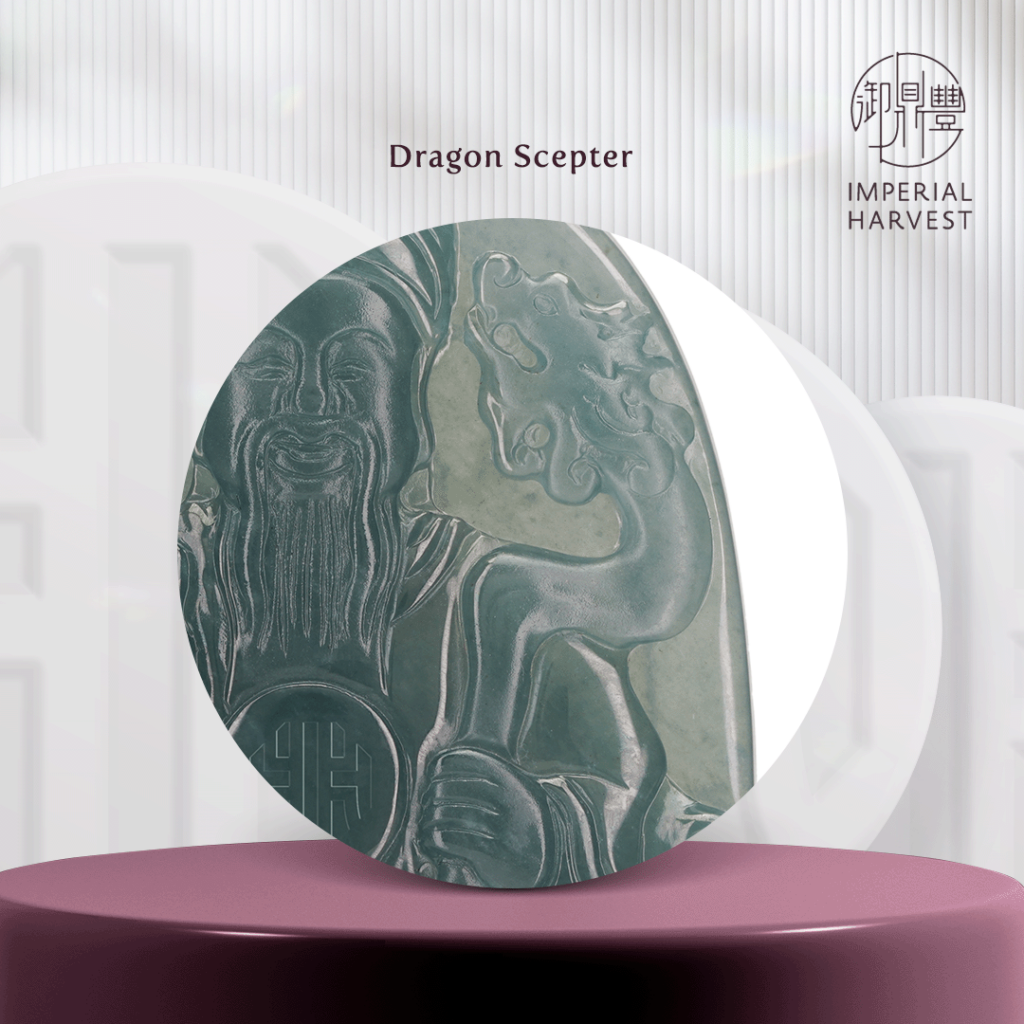
The Dragon Scepter, a formidable weapon deeply ingrained in Chinese culture, is a potent symbol warding off negative influences. It embodies Tua Pek Gong’s revered status. Depicting a dragon, this emblem is associated with ancient Chinese emperors, symbolising traits of authority, wisdom and critical decision-making.
Adorning Tua Pek Gong’s Dragon Scepter, this emblem symbolises boundless potential and success, allowing its wearer to ascend to unparalleled heights in their pursuits. As a beacon of fortune and protection, the Dragon Scepter encapsulates Tua Pek Gong’s blessings, leading individuals to enduring prosperity and success.
Empowering Growth and Success
Designed with career professionals in mind, the Imperial Harvest Fine Jadeite Tua Pek Gong is blessed by Master David Goh and bestows its destined owners with enhanced benefactor support, empowering them to rise to the top echelons of their industries. In addition, Tua Pek Gong offers guidance in making major career decisions, fostering an abundance of prosperity.
As an all-encompassing Imperial Harvest treasure, the Fine Jadeite Tua Pek Gong bestows good health and blissful family relationships, allowing its owners to lead lives with financial and spiritual abundance.
Bespoke Blessing by Master David Goh
Master David conducts bespoke blessing rituals for every Imperial Harvest treasure. This meticulous process includes hand-drawing unique talismans for use in the consecration rites. Furthermore, Master David recites auspicious prayers before anointing each jadeite treasure with specially prepared red vermilion.

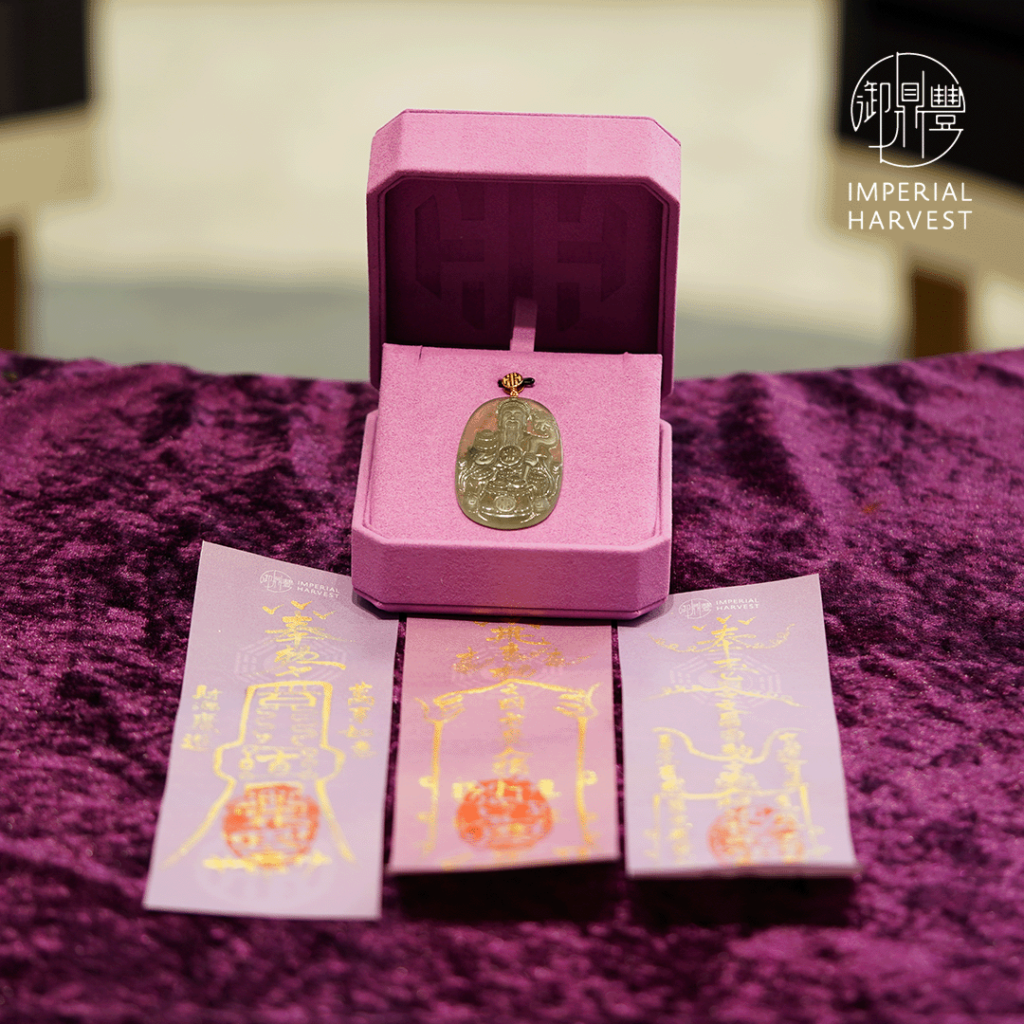
Master David completes the auspicious talismans to be used in the consecration.
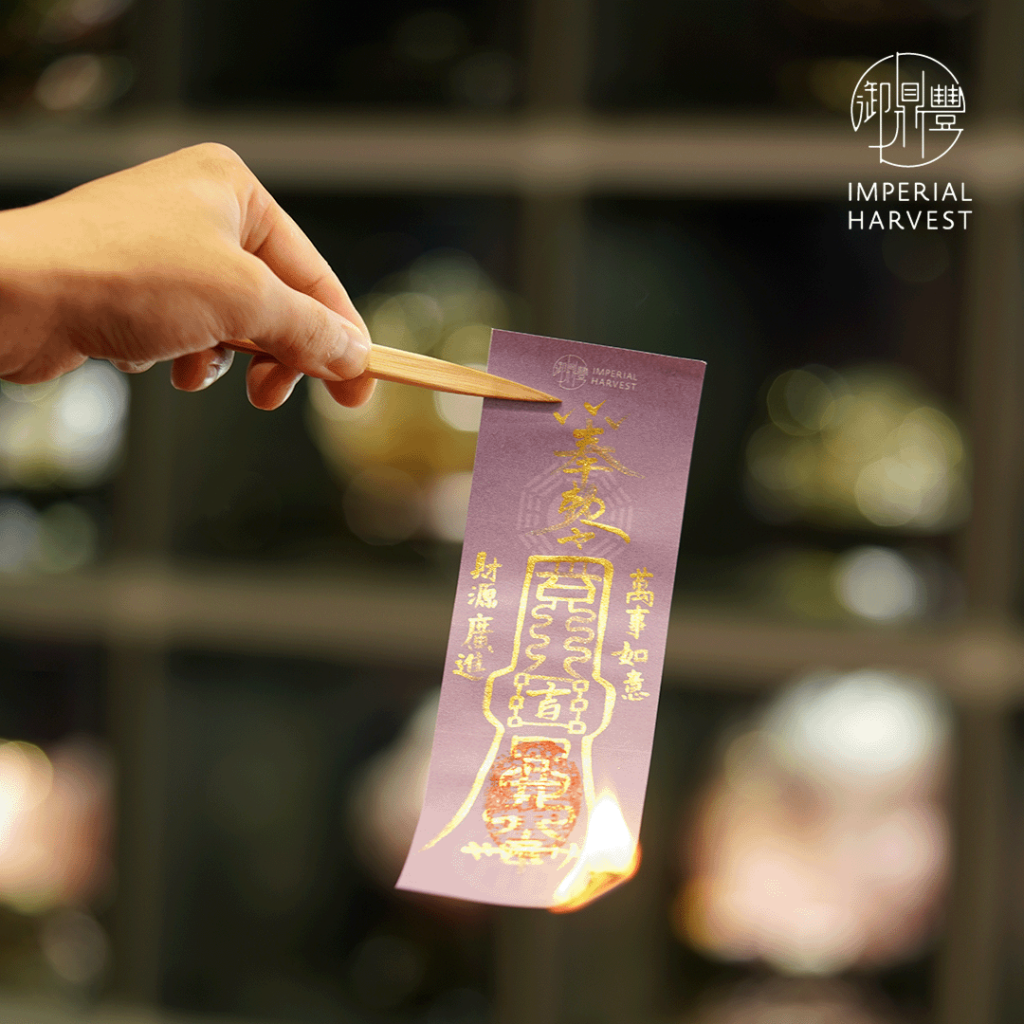
He then burns the talismans in the Imperial Harvest Crystal Cauldron.
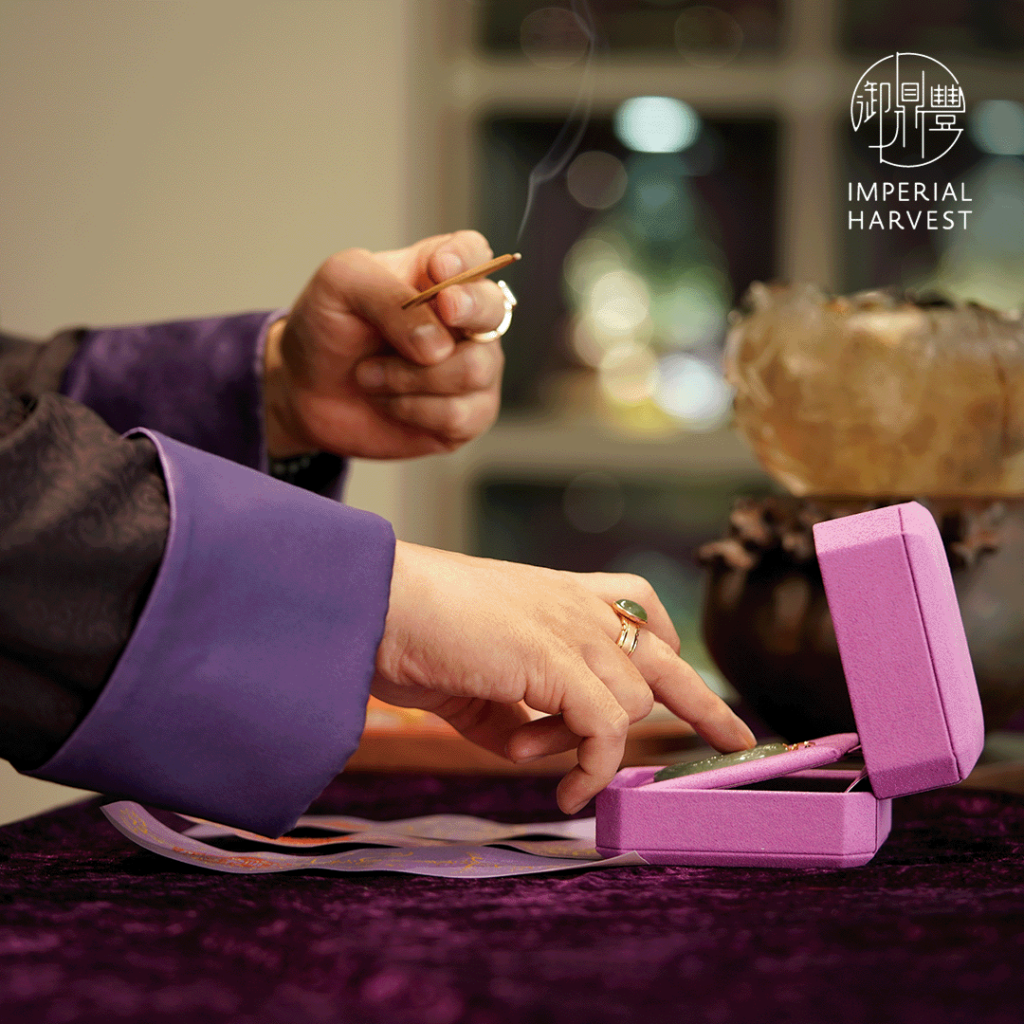
Master David lights incense, recites consecration prayers and anoints the Imperial Harvest treasure in red vermilion.
A Lifelong Journey with Imperial Harvest
Embarking on a journey with Imperial Harvest entails forging a lifelong partnership with Master David Goh and his seasoned team. This journey includes a range of services such as annual Bazi reviews, house Feng Shui assessments, Qi Men Dun Jia consultations, and Yi Jing divination, all provided at no cost, ensuring enduring prosperity and success.

Discover the transformative potential of the Imperial Harvest Fine Jadeite Tua Pek Gong and immerse yourself in a harmonious fusion of luxury, spirituality, and personal empowerment. Schedule your complimentary Bazi consultation with Imperial Harvest today and explore how this exquisite treasure can propel your career and business to unprecedented heights.
Imperial Harvest’s expert consultants are always on hand to guide you on your journey and provide you with insights to help you realise your fullest potential. Book a complimentary consultation today or contact us at +65 92301640.
We are located at
For prospective clients:Imperial Harvest402 Orchard Road
Delfi Orchard #02-07/08
Singapore 238876 For existing clients:Imperial Harvest Prestige
402 Orchard Road
Delfi Orchard #03-24/25
Singapore 238876
Most Read Articles
Get to read our life changing articles and get inspired.
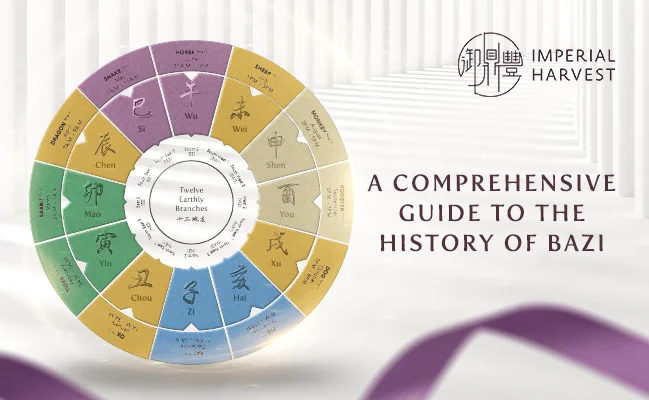
A Comprehensive Guide to the History of Bazi (八字)
Estimated Reading Time: 5 mins Bazi (八字) is often mistakenly assumed as the Chinese counterpart of western Astrology. The similarities between both systems lie in their utilisation of birth dates and time in their calculations, and the ability to be read from a tabulated chart. Where Astrology may take into account the positions of different […]

Imperial Harvest Consecration Ceremony
Estimated Reading Time: 5 mins At Imperial Harvest, each earthly treasure undergoes a series of consecration rites performed by Master David, before it is bestowed upon its blessed owner. Every aspect of these sacred Chinese anointing rituals is carefully examined and accurately represented in Master David’s blessings, reflecting Imperial Harvest’s deep respect for these esteemed […]
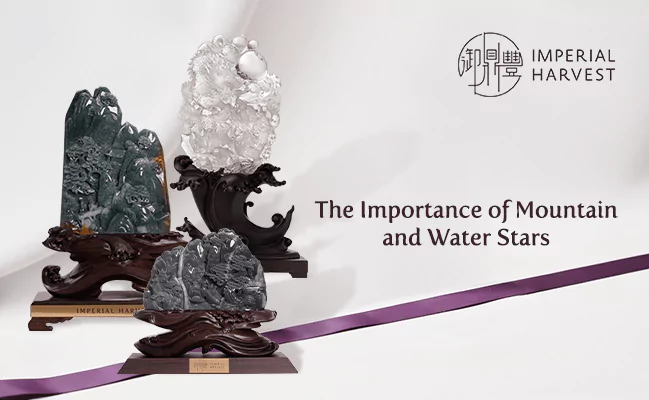
The Importance of Mountain and Water Stars
Estimated Reading Time: 4 mins “山管人丁,水管财”, is a well-cited principle in the study of Imperial Feng Shui that translates to “Mountains govern benefactors, authority and harmony, while Water governs wealth, opportunities and intuition”. This principle reiterates a critical factor in Imperial Feng Shui — balance is the key to achieving success in life. As mountain […]
